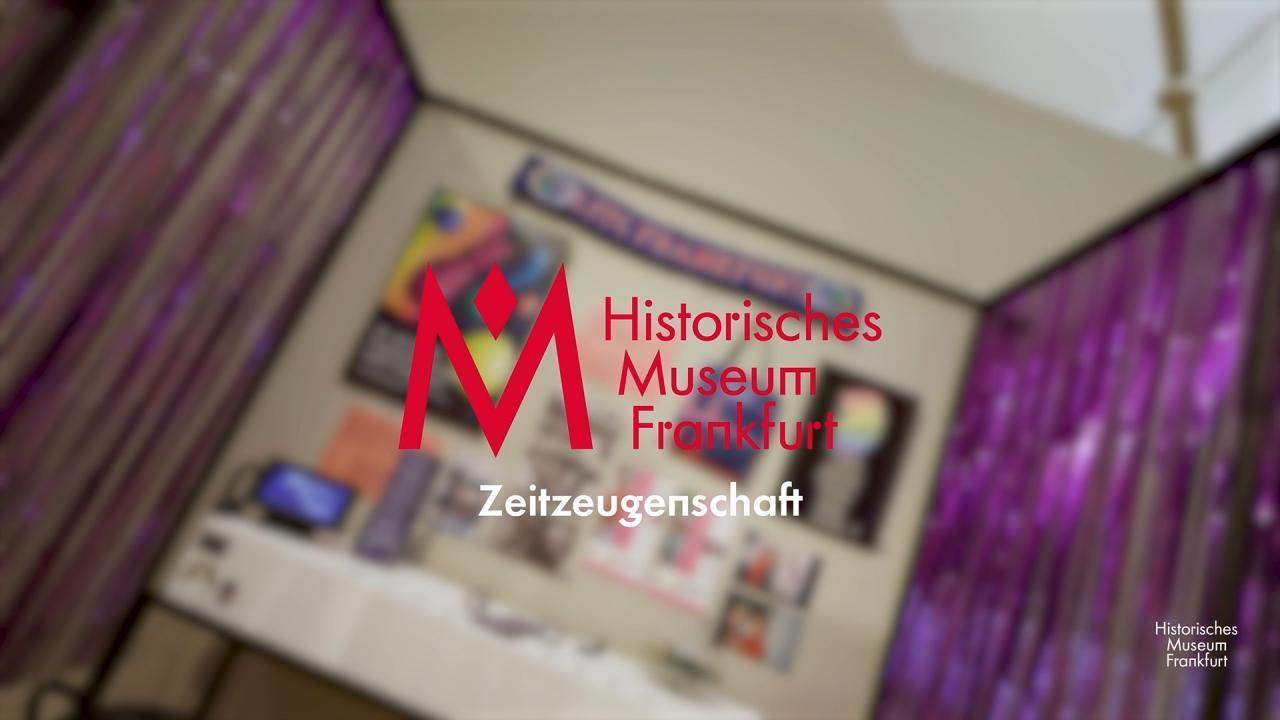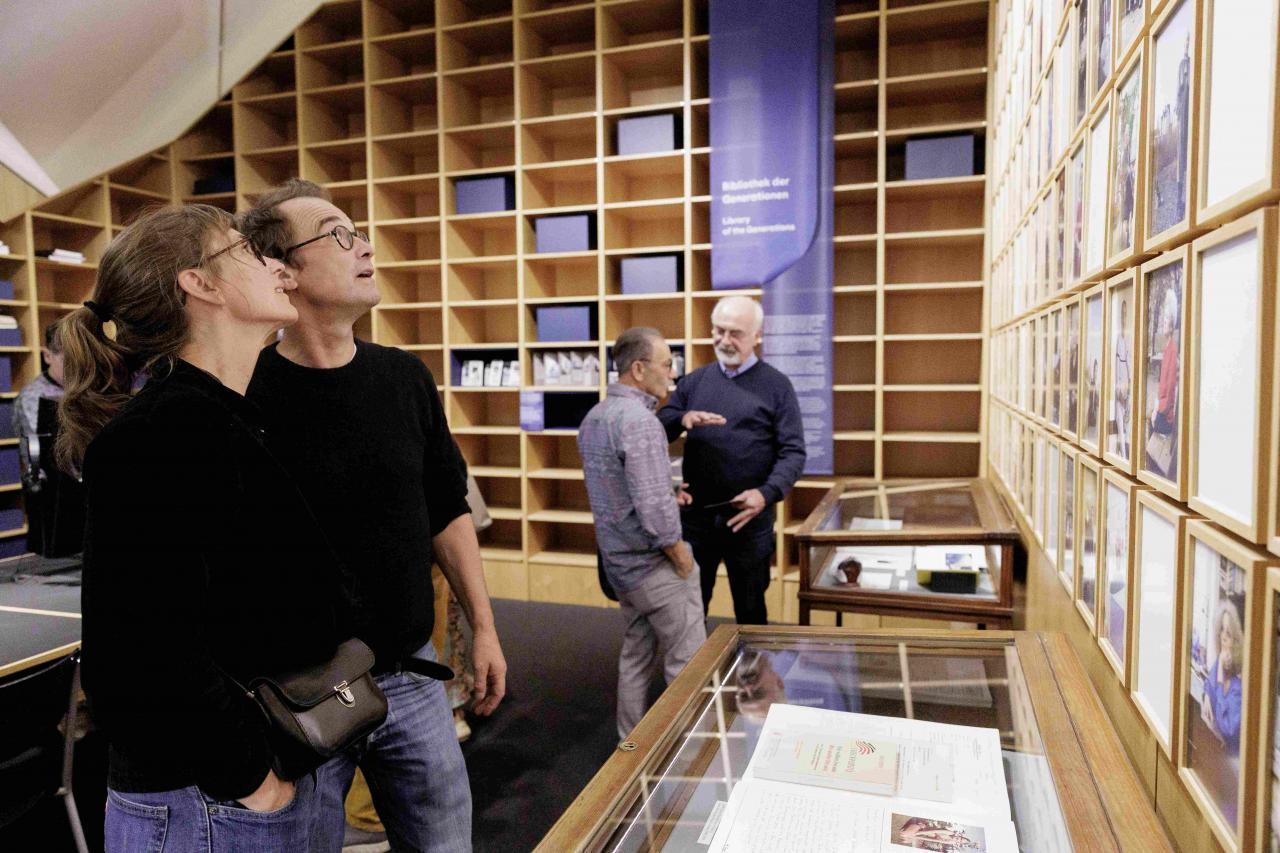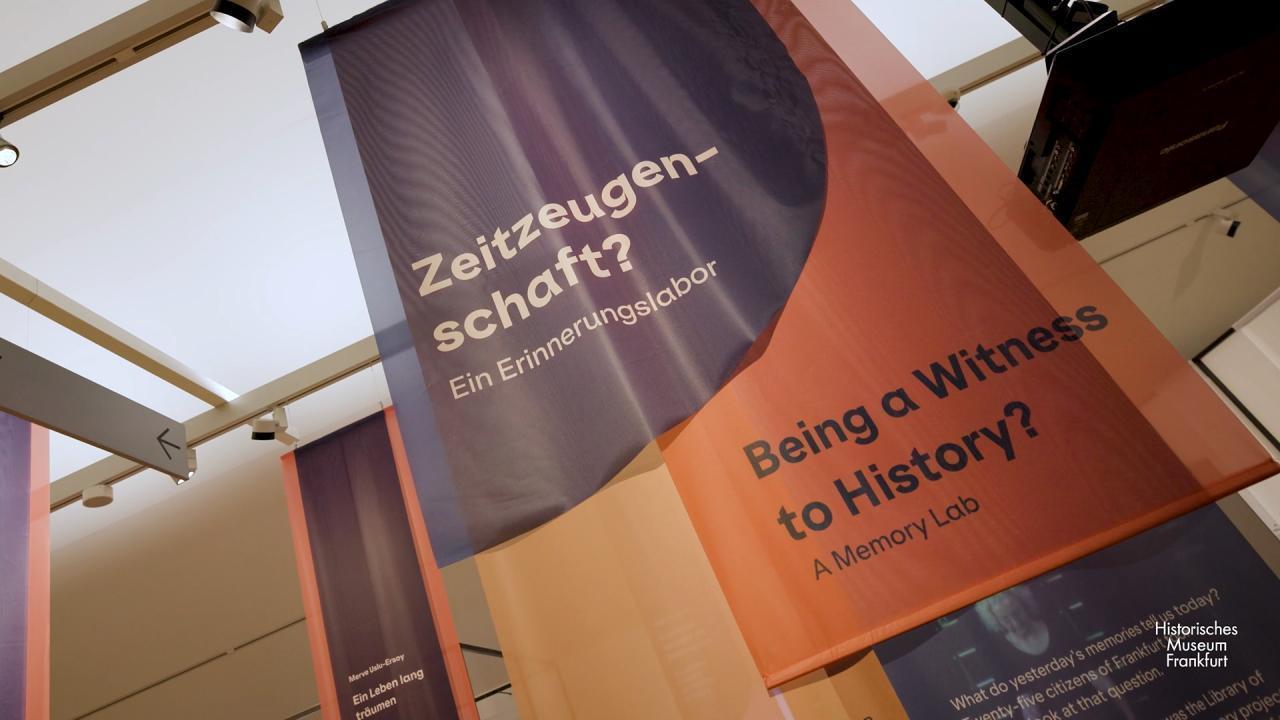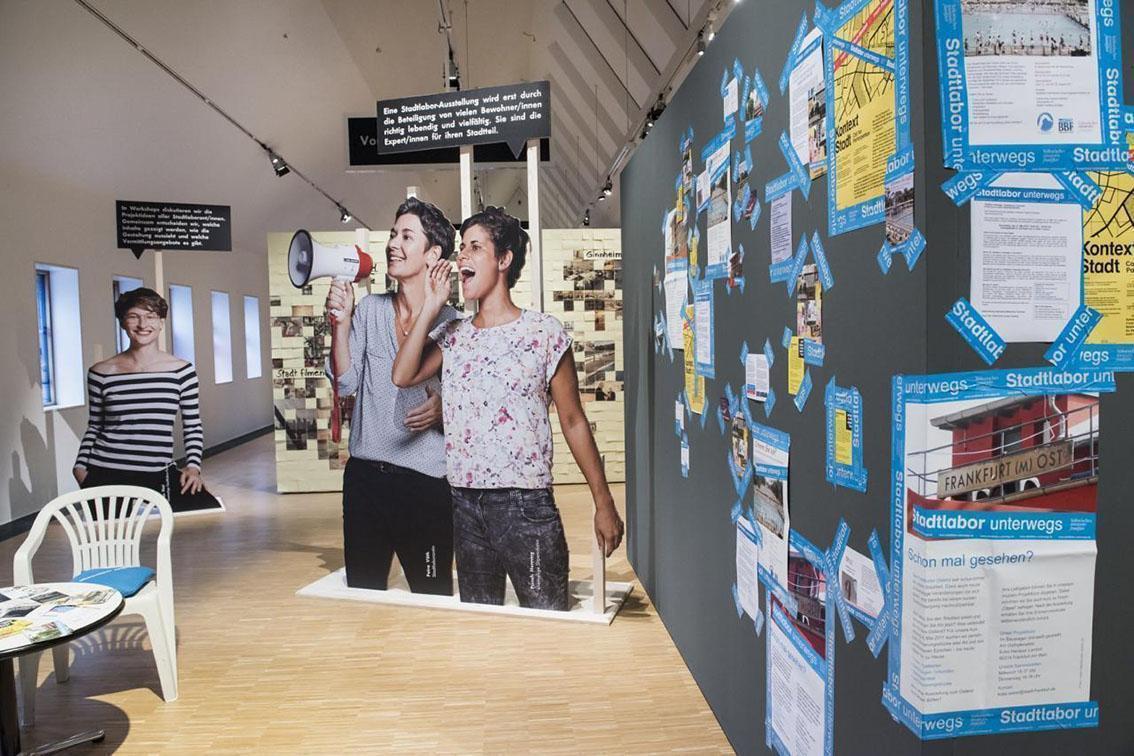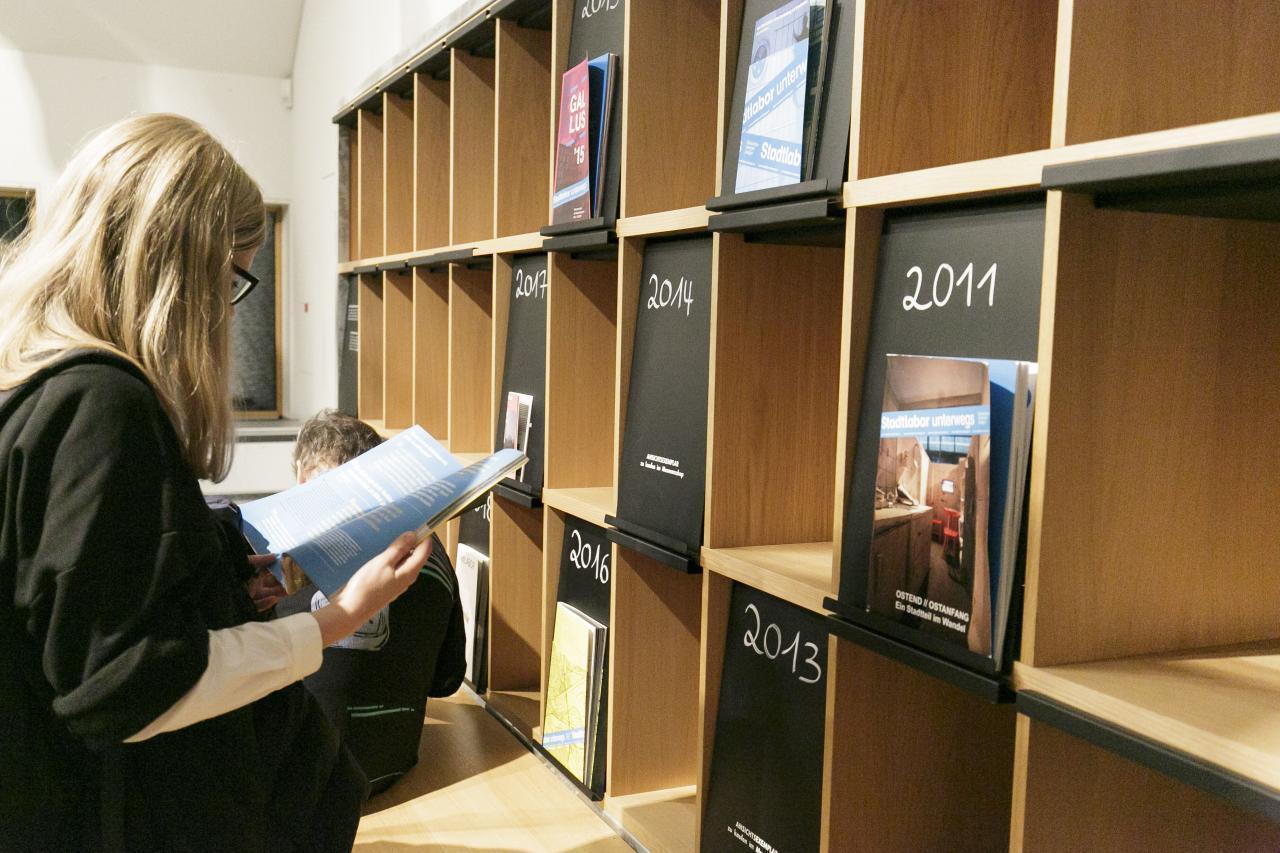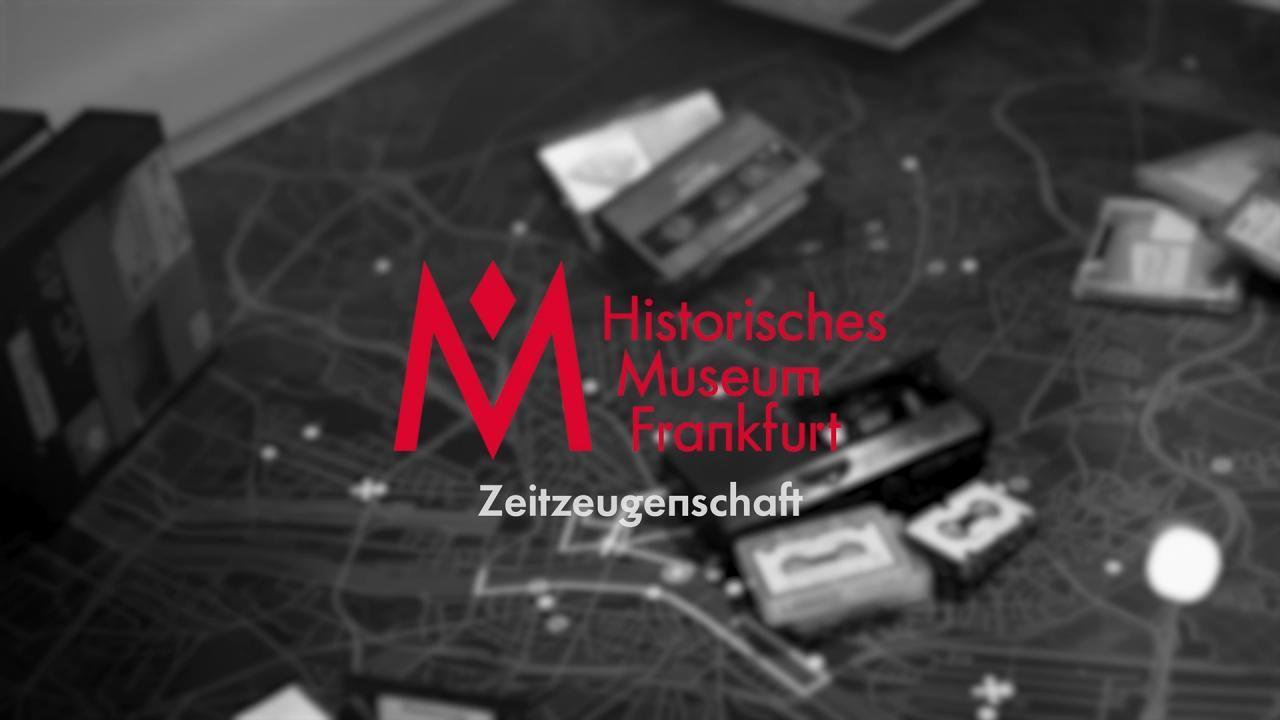Being a Witness to History?
A Memory Lab
The starting point for the questions and reflections are contributions from the Library of Generations, an artistic long-term reminiscence project by Sigrid Sigurdsson, which is hosted in the Historical Museum for almost 25 years now and will run until 2105. For the Memory Lab, all participants chose a contribution from the Library of the Generations that they analysed and used as a starting point to develop their own contribution to the exhibition. The topics ranged from family histories, experiences of dictatorship, different stories of education, political struggles, voluntary or forced migration, stories how people dealt with crises, to stories of places in the city and their transformation, such as the university as a place of learning, politicisation or as a point of orientation.
End of Testimony?
In addition to the Memory Lab we will also displayed the special exhibition "The End of Testimony?", developed by the Jewish Museum Hohenems and the Flossenbürg Memorial. Our idea of witnessing has been significantly shaped by conversations and interviews with Holocaust survivors.
75 years after the end of the war, there are hardly any survivors of the Nazi regime who are able to speak about their own experiences or tell the stories of people who were murdered in the Holocaust. Many of their memories are preserved in literary testimonies and numerous videos of interviews in public and private archives. Public institutions today are faced with the question of how they want to deal with this legacy in the future. For the Frankfurt exhibition, we focused on the diversity of the recorded material with which we have to deal: There are professionally recorded interviews and amateur recordings, storytelling cafés and conversations with pupils, public events and privately recorded conversations, ... In the exhibition, we provided an insight into the big variety of interviews and the many different occasions for the talks, as well as the different purposes for which they were and are used, ranging from pure recording to professionally prepared didactic material.
Digitization Workshop
To preserve the stories told by witnesses to history, the recording of interviews is only the first step. To ensure that people will also be able to listen to them in the future, they must be archived in a place accessible to the public. Media technology has undergone rapid transformation over the past decades. Soon it will no longer be possible to play back many older recordings, for example those on VHS and audio cassettes. Storage media become obsolete. We are threatened with an “end of testimony” in the media sense as well.
The digitization workshop offered ‘first aid’: Here you could digitize contents from outdated storage media—and keep the voices of witnesses to history from falling silent at least in this way.
The digitization workshop was open twice a month.
Cooperations and Sponsors
Cooperations
Jüdisches Museum HohenemsKZ-Gedenkstätte Flossenbürg
Fritz Bauer Institute
Junges Schauspiel Frankfurt
DFF - Deutsches Filminstitut und Filmmuseum
Deutsches Exilarchiv 1933-1945 der Deutschen Nationalbibliothek
DoMiD - Dokumentationszentrum und Museum der Migration in Deutschland
Jüdisches Museum Frankfurt
Sponsors
Sponsored by means of the Federal Foundation for the Study of the Communist Dictatorship in East Germany
the Polytechnic Foundation of Frankfurt am Main
Kulturamt Frankfurt am Main
Jugend- und Sozialamt Frankfurt am Main
Freunde & Förderer des Historischen Museums Frankfurt


